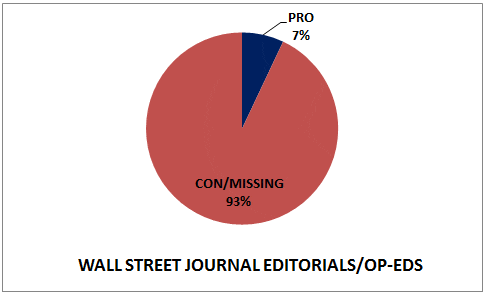93% of WSJ Opinion Pieces Misreport Climate Change
Scott Mandia, a professor of physical sciences at Suffolk County Community College at Long Island, N.Y. has done a topline analysis (on Climate Progress) of Wall Street Journal Editorial and Op-Ed (the “Opposite Editorial” Opinion Page) coverage of climate change and finds that the paper tells the truth seven per cent of the time.
The WSJ’s defence for this performance would undoubtedly be twofold. First, the pages Mandia analysed are for opinion, not news. Second, there really ARE a couple of deluded “experts” out there who challenge the majority view on climate change: the Journal has a right and responsibility to give voice to those views.
Fair enough. But a paper published in the Proceedings of the National Academy of Sciences has found that the proponderance of climate scientists who are worried about global warming is 97 per cent – not seven per cent, so the Journal is a bit off the mark. And while the paper is entitled to its opinions, it is beyond irresponsible to be setting its wishful thinking forth as fact. Bullshit is still bullshit, even if it’s in an editorial.
Subscribe to our newsletter
Stay up to date with DeSmog news and alerts







